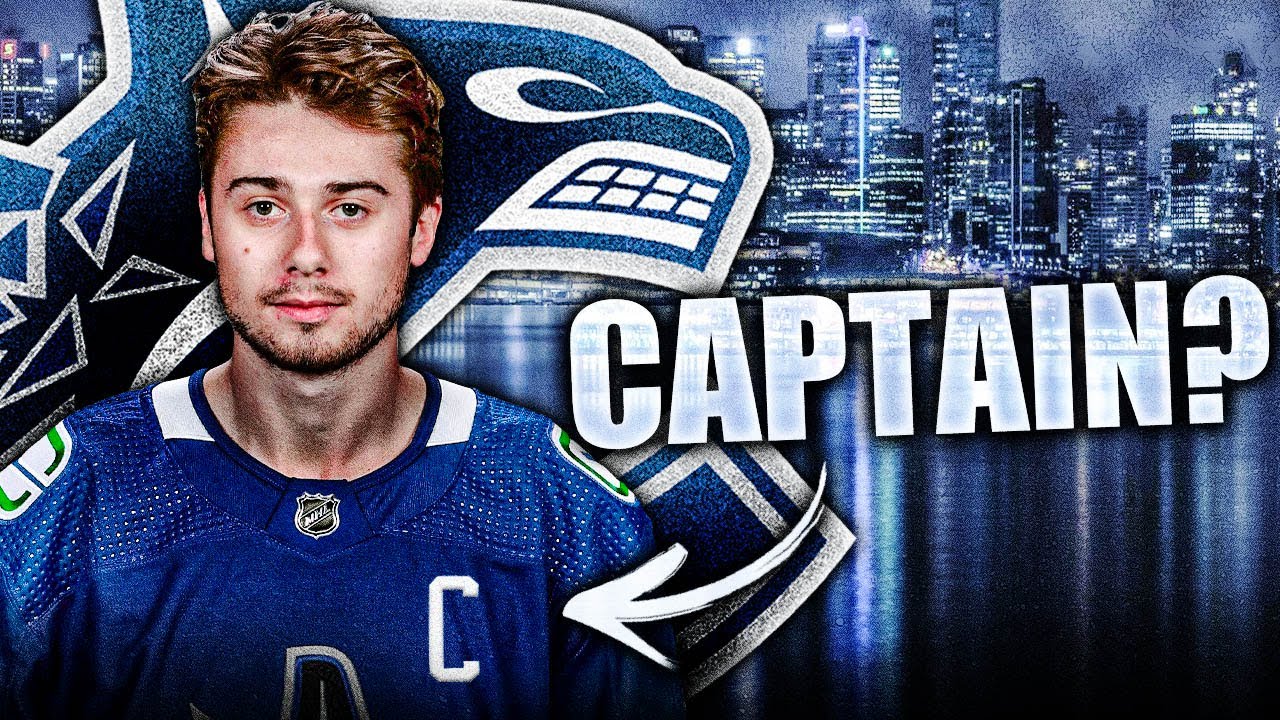
In the often-turbulent world of professional hockey, leadership is tested not just by on-ice performance, but by the relentless currents of expectation, speculation, and organizational flux. For Quinn Hughes, the exceptionally skilled defenseman and captain of the Vancouver Canucks, the recent offseason has been a masterclass in navigating such complexities. Fresh off a season that saw more drama than a primetime television series, Hughes has emerged with a clear, unequivocal message: he`s here to play, to lead, and to win, unfazed by the cacophony surrounding him.
The Captain`s Compass: Navigating the `Noise`
The term “noise” in sports parlance is a catch-all for anything distracting a player from their primary objective. For a 25-year-old superstar eligible for a contract extension next summer, this “noise” can be deafening. Yet, Hughes, with a composure that belies his age, asserts, “I can handle the noise. That`s why I`m the captain of the team, because I can handle these things and I can play at an elite level and it doesn’t matter what’s going on around me.” This isn`t just bravado; it`s a statement of purpose from a player who understands the immense weight of the `C` on his jersey, especially in a hockey-mad market like Vancouver.
The past winter, Hughes admits, was an “upheaval.” A deluge of injuries sidelined key players, including Hughes himself, who battled a torn hand ligament, an oblique muscle tear, and a groin strain. Beyond the physical toll, the team grappled with the highly publicized sagas surrounding top forwards Elias Pettersson and the now-departed J.T. Miller. Such external pressures can easily derail a team, turning a promising season into a footnote of missed opportunities. Last year, Hughes candidly states, “was a failure,” and his competitive drive demands a different outcome this time around.
A Shifting Coaching Landscape: From Tocchet to Foote
Adding another layer to the offseason narrative was the departure of head coach Rick Tocchet, a move that undoubtedly stung Hughes, who openly admired his passion and care for the players. Tocchet, the reigning NHL coach of the year, opted not to re-sign, eventually finding a new home with the Philadelphia Flyers. In an industry where loyalty is often secondary to opportunity, Tocchet`s decision was a stark reminder of the business side of the game. Hughes, ever the pragmatist, acknowledged Tocchet`s right to pursue his path, hinting at unspoken family considerations. “Rick deeply cared about the Canucks and wanted to make this a winning organization,” Hughes reflected, offering a glimpse into the human element often obscured by headlines.
The baton has since passed to Adam Foote, a figure Hughes now views with “excitement.” This transition, from a coach he deeply respected to a new voice, presents its own set of challenges, but Hughes` focus remains resolutely forward. It`s a testament to his professional maturity: mourn the loss, but embrace the change and move on.
The Present Imperative: Drive for the Playoffs
While the long-term future of his contract may loom, Hughes is hyper-focused on the immediate. “I’m very present. I can’t even sign for another year, so there’s nothing I can do,” he declared, illustrating a disciplined approach to managing distractions. His immediate goal isn`t just training camp, but the pre-camp skate test—a seemingly minor detail that underscores his commitment to setting the tone. “I’m focused on the skate test before camp, so I can push my teammates so that everyone`s ready going into camp.” This meticulous preparation speaks volumes about his intent to elevate not just his own game, but that of the entire squad.
As a Norris Trophy winner, Hughes operates at a rarefied level. His offensive output last season, despite injuries, was still remarkable, leading the Canucks in scoring by a significant margin. However, he freely admits his personal performance tailed off, attributing it to the physical tolls. Now, healthy and invigorated, he aims to reclaim his peak form, leveraging his elite skating and puck-handling to once again be the dynamic force on the blueline. His desire to represent the United States at the Olympics is a potent personal ambition, but it`s clearly secondary to the collective goal of the Canucks making a deep playoff run. “Who knows what we can do and who knows how I’ll be feeling this time next year? It’s still a year away,” he mused, a frank admission that in sports, a lot can change in twelve months.
Conclusion: The Road Ahead
Quinn Hughes stands at a pivotal juncture, both personally and professionally. As captain of the Vancouver Canucks, he embodies the team`s aspirations for redemption and sustained success. His ability to compartmentalize—to acknowledge the “noise” without letting it define his present actions—is a hallmark of true leadership. With a new coaching staff, renewed health, and a singular focus on the task at hand, Hughes is poised to steer the Canucks through the choppy waters of the NHL season, aiming for nothing less than a triumphant return to the Stanley Cup playoffs. The questions about his long-term future will undoubtedly resurface, but for now, the captain has charted a course, and he`s all in for the journey.

